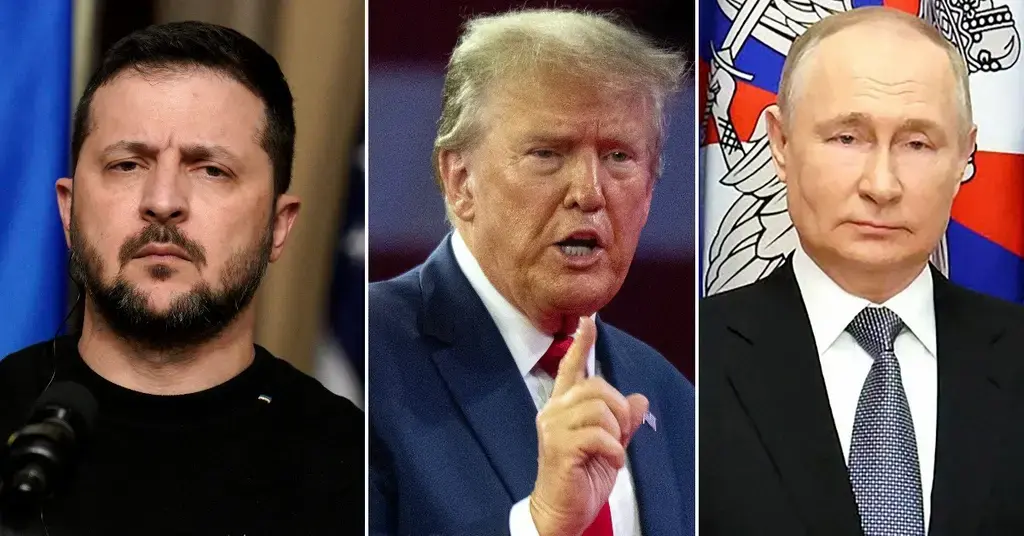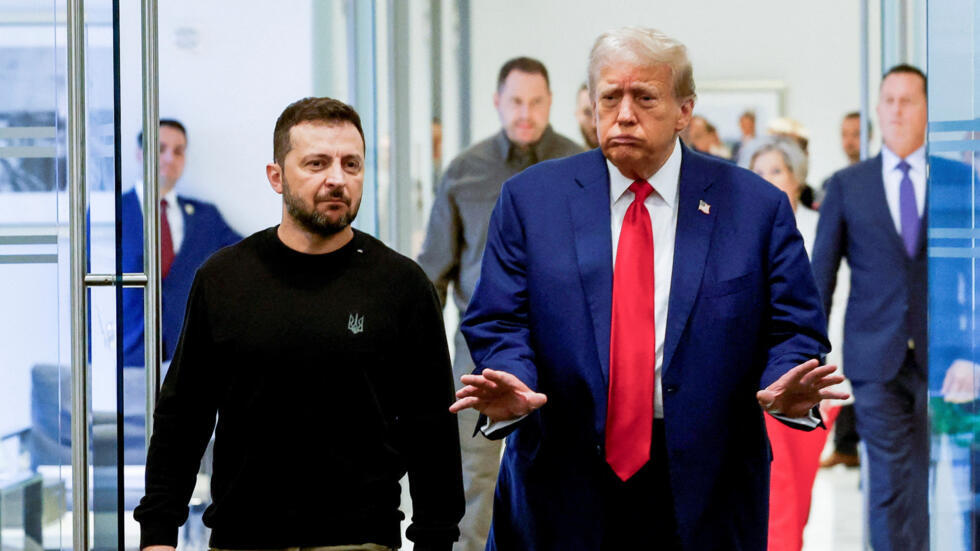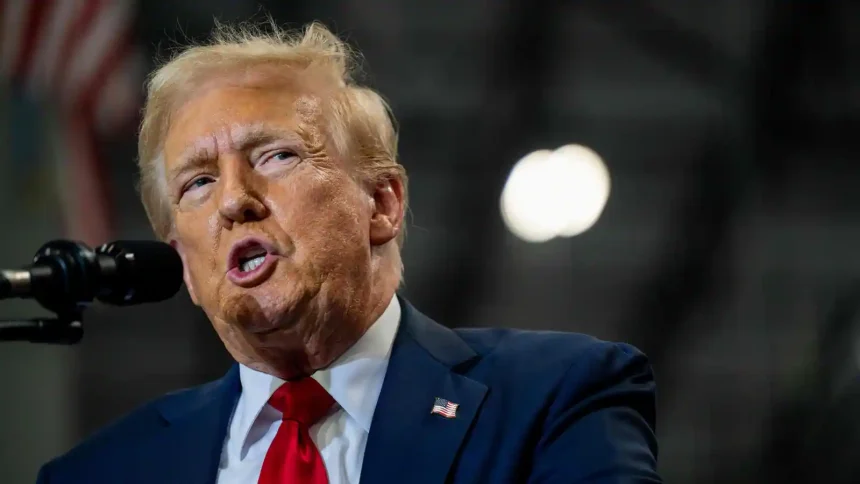Former President Donald Trump recently made headlines by blaming Ukrainian President Volodymyr Zelenskiy for helping ignite the ongoing war between Ukraine and Russia, adding further fuel to speculation that a Trump victory in the upcoming 2024 U.S. election could drastically alter U.S. policy toward Ukraine.
His comments, made during an interview on the PBD Podcast with Patrick Bet-David, mark an escalation in his criticism of the Ukrainian leader, and suggest a potential shift in U.S. involvement in the conflict if Trump returns to the White House.
Trump’s stance on Ukraine has been a recurring theme throughout his 2024 campaign. He has frequently referred to Zelenskiy as “the greatest salesman on Earth” for successfully securing billions of dollars in U.S. military aid since Russia’s invasion of Ukraine in 2022.
Trump has also criticized Zelenskiy for failing to pursue peace with Moscow, hinting that Ukraine might need to make territorial concessions to Russia in order to secure a peace deal—an option that Kyiv has consistently rejected as unacceptable.

In his recent remarks, however, Trump took his critique a step further, suggesting that Zelenskiy was not only responsible for prolonging the war but had a role in starting it. This assertion overlooks the fact that the conflict began with Russia’s invasion of Ukraine, a violation of Ukrainian sovereignty. “That doesn’t mean I don’t want to help him, because I feel very badly for those people,” Trump said. “But he should never have let that war start. The war’s a loser.”
READ ALSO: Israeli Military Claims Hamas Leader Yahya Sinwar Killed in Gaza Airstrike
These comments stand in stark contrast to the meeting between Trump and Zelenskiy in New York in September, during which Zelenskiy presented his “victory plan” for ending the war. Both leaders described their encounter as cordial, but Trump’s public rhetoric suggests he may be inclined to reduce or even wind down U.S. military aid to Ukraine if he wins the election.
This would mark a significant shift from the Biden administration’s approach, which has provided substantial support to Ukraine and framed the conflict as a critical issue for U.S. national security.
Trump has repeatedly claimed that he could end the conflict quickly, asserting that he could negotiate a peace deal before even taking office in January. However, he has yet to provide specific details on how he would achieve such a resolution, leaving many to question the feasibility of his claims.
In contrast, Vice President Kamala Harris, who is running as the Democratic nominee, has vowed to continue U.S. support for Ukraine. Harris has positioned a Ukrainian victory as vital not only for Europe but for global stability, viewing it as a direct challenge to Russian aggression and a defense of international norms.
She has often criticized Trump for being too soft on Russian President Vladimir Putin, emphasizing the importance of standing firm against Moscow.

READ ALSO: Ederson Confirms Man City Have Pep Guardiola’s Successor Lined Up
The war in Ukraine remains a deeply polarizing issue in U.S. politics, and Trump’s statements are likely to intensify the debate about the future of American involvement in the conflict. If elected, Trump’s approach could signal a major departure from the current bipartisan support for Ukraine, potentially reshaping the global landscape and the U.S. role in international conflicts.
Whether his bold claims of a swift resolution will resonate with voters remains to be seen, but his latest remarks suggest that his foreign policy could lead to a dramatic shift in U.S.-Ukraine relations.

